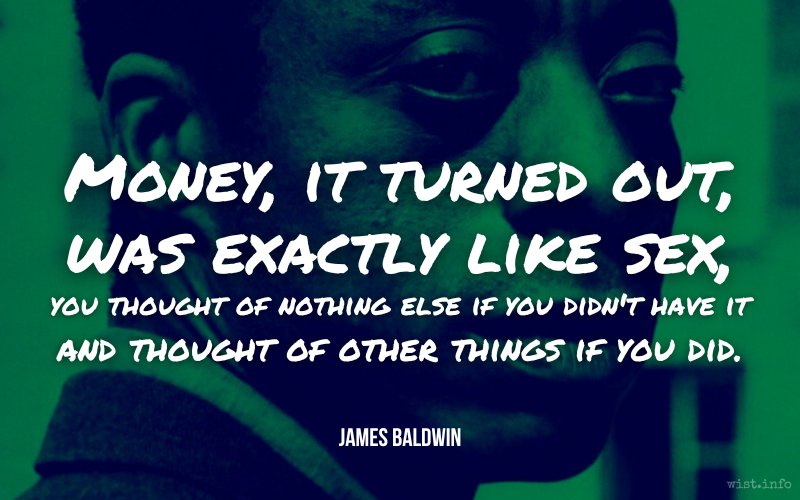Foolish people, I say, then, who have never experienced much of either, will tell you that mental distress is far more agonizing than bodily. Romantic and touching theory! so comforting to the love-sick young sprig who looks down patronizingly at some poor devil with a white starved face and thinks to himself, “Ah, how happy you are compared with me!” — so soothing to fat old gentlemen who cackle about the superiority of poverty over riches. But it is all nonsense — all cant. An aching head soon makes one forget an aching heart. A broken finger will drive away all recollections of an empty chair. And when a man feels really hungry he does not feel anything else.
Jerome K. Jerome (1859-1927) English writer, humorist [Jerome Klapka Jerome]
Idle Thoughts of an Idle Fellow, “On Eating and Drinking” (1886)
(Source)
Quotations about:
lack
Note not all quotations have been tagged, so Search may find additional quotes on this topic.
The noble-minded worry about their lack of ability, not about people’s failure to recognize their ability.
[君子病無能焉、不病人之不己知也]
Confucius (c. 551- c. 479 BC) Chinese philosopher, sage, politician [孔夫子 (Kǒng Fūzǐ, K'ung Fu-tzu, K'ung Fu Tse), 孔子 (Kǒngzǐ, Chungni), 孔丘 (Kǒng Qiū, K'ung Ch'iu)]
The Analects [論語, 论语, Lúnyǔ], Book 15, verse 19 (15.19) (6th C. BC – AD 3rd C.) [tr. Hinton (1998)]
(Source)
(Source (Chinese)). See also 1.16, 4.14, 14.30. Legge and other early translators numbered this, as shown below, 15.18. Alternate translations:
The superior man is distressed by his want of ability. He is not distressed by men's not knowing him.
[tr. Legge (1861), 15.18]
The trouble of the superior man will be his own want of ability: it will be no trouble to him that others do not know him.
[tr. Jennings (1895), 15.18]
A wise and good man should be distressed that he has no ability ; he should never be distressed that men do not take notice of him.
[tr. Ku Hung-Ming (1898), 15.18]
The noble man is pained over his own incompetency, he is not pained that others ignore him.
[tr. Soothill (1910), 15.18]
The proper man is irritated by his incapacities, not irritated by other people not recognizing him.
[tr. Pound (1933), 15.18]
A gentleman is distressed by his own lack of capacity; he is never distressed at the failure of others to recognize his merits.
[tr. Waley (1938), 15.18]
The perfect gentleman complains about his own inabilities; not about people’s ignorance of himself.
[tr. Ware (1950)]
The gentleman is troubled by his own lack of ability, not by the failure of others to appreciate him.
[tr. Lau (1979)]
The gentleman is pained at the lack of ability within himself; he is not pained at the fact that others do not appreciate him.
[tr. Dawson (1993)]
A gentleman resents his incompetence; he does not resent his obscurity.
[tr. Leys (1997)]
The gentleman worries about his incapability; he does not worry about men not knowing him.
[tr. Huang (1997)]
A gentleman worries about that he does not have the ability, does not worry about that others do not understand him.
[tr. Cai/Yu (1998), #403]
Exemplary persons (junzi) are distressed by their own lack of ability, not by the failure of others to acknowledge them.
[tr. Ames/Rosemont (1998)]
The gentleman takes it as a fault if he is incapable of something; he does not take it as a fault if others do not know him.
[tr. Brooks/Brooks (1998)]
The gentleman is distressed by his own inability, rather than the failure of others to recognize him.
[tr. Slingerland (2003)]
The gentleman is troubled by his own lack of ability. He is not troubled by the fact that others do not understand him.
[tr. Watson (2007)]
The gentleman is worried about his own lack of ability and not about the fact that others do not appreciate him.
[tr. Chin (2014)]
A Jun Zi is disappointed about his own incompetency. He is not distressed that he is not known by others.
[tr. Li (2020)]
Money is like sex. It seems much more important when you don’t have any.
Wise is he who instead of grieving over what he lacks delights in what he has.
[Εὐγνώμων ὁ μὴ λυπεόμενος ἐφ’ οἷσιν οὐκ ἔχει, ἀλλὰ χαίρων ἐφ’ οἷσιν ἔχει.]
Democritus (c. 460 BC - c. 370 BC) Greek philosopher
Frag. 231 (Diels) [tr. @sententiq (2016)]
(Source)
Original Greek. Diels citation "231 (61 N.)"; collected in Joannes Stobaeus (Stobaios) Anthologium III, 17, 25. Bakewell lists this under "The Golden Sayings of Democritus." Freeman notes this as one of the Gnômae, from a collection called "Maxims of Democratês," but because Stobaeus quotes many of these as "Maxims of Democritus," they are generally attributed to the latter. Alternate translations:
- "A sensible man takes pleasure in what he has instead of pining for what he has not." [tr. Bakewell (1907)]
- "The right-minded man is he who is not grieved by what he has not, but enjoys what he has." [tr. Freeman (1948)]
- "A man of sound judgement is not grieved by what he does not possess but rejoices in what he does possess." [tr. Barnes (1987)]
- "A sensible man does not grieve for what he has not, but enjoys what he has." [Source]
We are all more blind to what we have than to what we have not.
Audre Lorde (1934-1992) American writer, feminist, civil rights activist
“Notes from a Trip to Russia,” Sister Outsider (1984)
(Source)
For want of a naile the shoe is lost, for want of a shoe the horse is lost, for want of a horse the rider is lost.
George Herbert (1593-1633) Welsh priest, orator, poet.
Jacula Prudentum, or Outlandish Proverbs, Sentences, &c. (compiler), # 499 (1640 ed.)
(Source)
Our frustration is greater when we have much and want more than when we have nothing and want some. We are less dissatisfied when we lack many things than when we seem to lack but one thing.
Eric Hoffer (1902-1983) American writer, philosopher, longshoreman
True Believer: Thoughts on the Nature of Mass Movements, Part 2, ch. 4, § 23 (1951)
(Source)
Money, it turned out, was exactly like sex, you thought of nothing else if you didn’t have it and thought of other things if you did.













